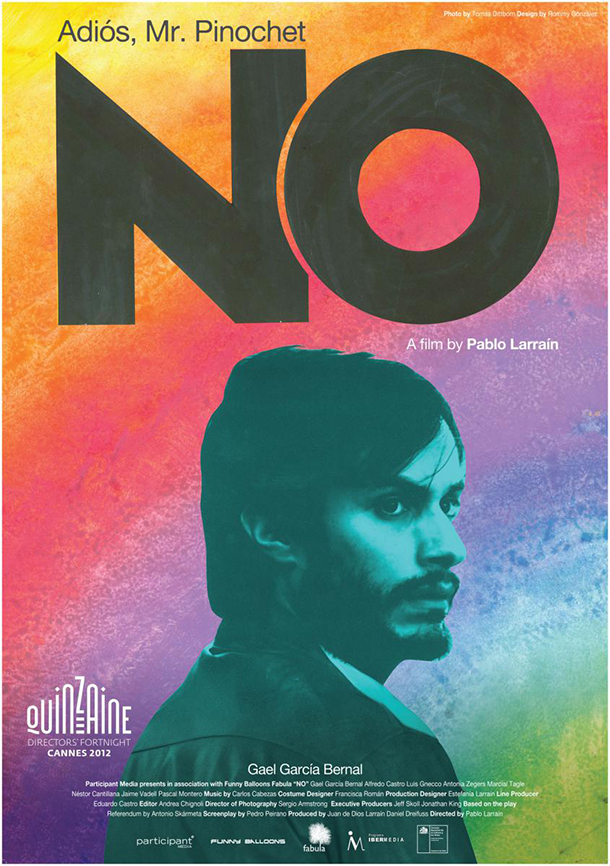
General Augusto Pinochet ruled over Chile for 15 years. In 1988, a referendum was called on his presidency, upsetting the country’s political balance by creating two opposing sides. Those who remained loyal to Pinochet would be voting “si” in the upcoming election, while those who opposed him would be voting “no.” Nominated for Best Foreign Film at the Academy Awards, the appropriately titled “No” explores this intense political situation through the eyes of one man and the steps he must take to free his country.
In his fourth feature film, director Pablo Larraín made the bold decision to shoot “No” on an old U-matic video camera, confining the film to a letterboxed aspect ratio and reducing the overall picture quality. This gives the film a unique visual aesthetic, one akin to a home movie. Though this method can be a bit jarring at first, with the overblown lighting particularly egregious, Larraín’s decision pays off, and it gives him the chance to portray the media of the time period as it was viewed back then, with seamlessly incorporated real archival footage.
Gael García Bernal stars as René Saavedra, an advertising executive who decides to contribute to the No campaign. René is the Chilean equivalent of “Mad Men’s” Don Draper— the handsome, smooth-talker running things from behind the scenes. By day he pitches ads for a brand of cola, but at his core he’s a family man. He cares deeply for his son and fears for the world his child may have to live in one day. He worries about his wife’s continuing exploits among the radicals. Bernal handles the role with care, making the audience quickly sympathize with his character.
Instead of outright exposing Pinochet’s criminal actions, of which there were many, René and his team take a different approach with their campaign. The motto is simple:“Chile: happiness is coming!” René’s ads are enjoyable and creative, a series of jingles and promises for a better future that still manage to address the important issues.
Of course, the opposing side takes note of this strategy. Soon René’s boss, a loyalist to Pinochet and member of the Si campaign, essentially copies all of René’s ads and gives them a loyalist slant. What follows is a cat-and-mouse game between René and his boss, as the two constantly try to one-up each other.
With a compelling story and excellent performance from Bernal, “No” stands as a document of an important moment in history. Not only is it a joy to watch, but it also urges us to stand up for what we believe in and never give up hope, even in the face of those who oppose us. The film signals both a triumphant end and a new beginning for the people of Chile, and definitely deserves its place as an Academy Award nominee for Best Foreign Film. Do yourself a favor and say “yes” to “No.”
Jeremy Pick is a contributing writer. Email him at [email protected].
























































































































































